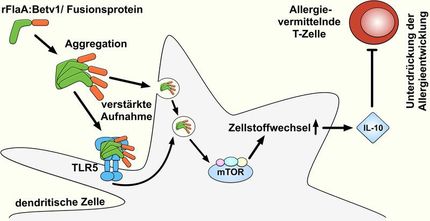Will Swine Flu provide proving ground for vaccine adjuvants?
Advertisement
Within the pharmaceutical sector, vaccines were traditionally regarded as low-margin products. However, with the decline of Big Pharma’s traditional small molecule blockbuster model and a marked swing towards biologics, vaccines have regained appreciation as generics-proof revenue drivers. This change of tack has not come without inherent challenges though. As vaccines move into indications and patient populations outside traditional target groups, improved technologies are required to overcome the hurdles associated with these novel challenges. Vaccine adjuvants are thus seen as a crucial tool to expand the vaccines market.
Only four approvals thus far
However, with only four adjuvants currently approved in the seven major markets (7MM) and just one in the US, they themselves face barriers to widespread acceptance. Independent market analysis firm Datamonitor, believes that the FDA’s conservative position towards novel adjuvants is likely to persist and poses a major hurdle for adjuvant developers. According to Datamonitor vaccines senior analyst Hedwig Kresse, the best strategy to maximize chances of a US approval for a novel adjuvant is to target indications with a high unmet need and no alternative vaccines already available.
In recent times, we have seen a shift in vaccine development away from whole-cell and live attenuated vaccines towards safer but less immunogenic split- and subunit antigens. This trend in turn has made vaccine adjuvants an area of great interest for vaccine developers. These add-on compounds promise a solution to the inherent conflict of safety and efficacy by potentially accelerating, enhancing and prolonging the immune response to vaccination, as well as reducing the amount of antigen needed per shot. This makes adjuvants an attractive option for prophylactic and therapeutic vaccines alike.
Two main factors drive the need for adjuvants: the insufficient immune response to both conventional vaccines in some population groups (e.g. the elderly), and to novel prophylactic and therapeutic vaccines for indications such as malaria, tuberculosis and cancer even in healthy individuals. Fortunately, recent scientific advances in immunology have identified suitable processes and signalling pathways for adjuvant targeting, and this in turn has encouraged many companies to embark on the development of novel adjuvants, which are widely considered to be ‘the next big thing’ in vaccinology.
Swine flu puts focus on adjuvants
The current influenza A (H1N1) pandemic may provide vaccine adjuvants with a proving ground to demonstrate the benefits they can bring. With the need for large quantities of vaccines, the need for antigen-sparing technology becomes more acute, and may lead to large adjuvant stockpiling orders by various governments. Miss Kresse, who is speaking on Thursday at the IIR Vaccines Development Forum 2009 in Boston, MA, says the approval and use of novel adjuvants for H1N1 could provide additional data and experience, thereby increasing chances of approval for non-pandemic indications.
Numerous manufacturers have initiated clinical trials investigating approaches using adjuvants and vaccines, most prominently pandemic vaccines using GSK’s AS03 and Novartis’ MF59. However, in recent clinical trials, non-adjuvanted H1N1 vaccines demonstrated sufficient immune responses, indicating that at least in the early stages of vaccination against H1N1, adjuvants will not play a role. This is underlined by the recent FDA approval for four non-adjuvanted H1N1 vaccines from Novartis, Sanofi Pasteur, CSL and Medimmune. Despite this drawback for adjuvant manufacturers, the H1N1 pandemic has brought adjuvants back to the forefront of discussion and public awareness. “Adjuvants will remain a challenging field for vaccine developers; however, we can expect significant developments in this field over the next decade,” Miss Kresse says.




























































